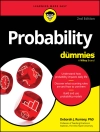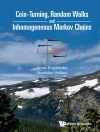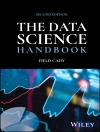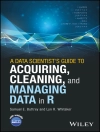When researchers gather around lunch tables, at conferences, or in bars, there are some topics that are more or less compulsory. The discussions are about the ho- less management of the university or the lab where they are working, the lack of funding for important research, politicians’ inability to grasp the potential of a p- ticularly promising ?eld, and the endless series of committees that seem to produce very little progress. It is common to meet excellent researchers claiming that they have almost no time to do research because writing applications, lecturing, and – tending to committee work seem to take most of their time. Very few ever come into a position to do something about it. With Simula we have this chance. We were handed a considerable annual grant and more or less left to ourselves to do whatever we thought would produce the best possible results. We wanted to create a place where researchers could have the time and conditions necessary to re?ect over dif?cult problems, uninterrupted by mundane dif?culties; where doctoral students could be properly supervised and learn the craft of research in a well-organized and professional manner; and where entrepreneurs could ?nd professional support in developing their research-based – plications and innovations.
Mục lục
The Scene.- What Would you do if you Suddenly got an Annual Grant of About Ten Million Dollars?.- By Thinking Constantly About It.- The Simula Culture – How we do Research, Education and Innovation.- Impressed with Targeted Research Strategy.- The Hamming Experience.- Richard Hamming – You and Your Research.- Simula Research Laboratory — A Different Research Institution.- IT Fornebu and the Political Battle that led to the Creation of Simula.- The Right Step at the Right Time.- A Brief History of Norwegian Science and Research Policy.- Simula — The Language.- Basic Research.- to Basic Research.- Networks and Distributed Systems — Why, What, How and What’s Next.- Scalable Interconnection Networks.- Providing Resilience in Communications Networks.- From Gilgamesh to Star Wars.- RELAY — On the Performance and Resource Utilisation of Time-Dependent Large-Scale Distributed Systems.- Scientific Computing – Why, What, How and What’s Next.- Catching the Beat.- Computer Simulations of the Heart.- A Message from the Heart.- Can ECG Recordings and Mathematics tell the Condition of Your Heart?.- Past and Future Perspectives on Scientific Software.- Software Engineering — Why, What, How and What’s Next.- A Matter of Judgement.- Software Development Effort Estimation — Demystifying and Improving Expert Estimation.- Faulty Until Proved Correct.- Software Verification — A Scalable, Model-Driven, Empirically Grounded Approach.- The industry is our lab — Organisation and Conduct of Empirical Studies in Software Engineering at Simula.- A Series of Controlled Experiments on Software Maintenance.- Research Education.- Educating Researchers — a Virtue of Necessity.- Thinking Outside the Box.- A Little Competition and a Lot of Cooperation.- Are you Planning to Take a Ph D?.- An Extraordinary Investment.- Simula can do Much Better!.- Achieving Relevance.- Research Applications.- Bridging the Gap Between Industry and Research.- Making the Invisible Visible.- Turning Rocks into Knowledge.- A Tale of Three Start-ups.- Spinning Off from Simula.- We’re Not a Telco, We’re a Webco.
Giới thiệu về tác giả
Aslak Tveito is managing director of the Simula group, and has worked at Simula Research Laboratory since the company was established in 2001. Tveito is professor in scientific computing at the Department of Informatics, University of Oslo. Prior to his appointment as managing director, Tveito served as research director for the scientific computing department at Simula. In addition to his work with the University of Oslo, Tveito has served as chief scientist at SINTEF Applied Mathematics.
Are Magnus Bruaset combines the position as Assistant Director of the Simula School of Research and Innovation AS with the leadership of Simula’s industrial collaboration in computational geosciences. Bruaset is professor in scientific computing at the Department of Informatics, University of Oslo. Before he joined Simula, Bruaset served as senior research scientist at SINTEF Applied Mathematics, and as entrepreneur and vice president of R&D in the research-based company Numerical Objects AS.
Olav Lysne is director of basic research, and has worked at Simula since the establishment in 2001. During his tenure with Simula, Lysne has also served as head of the networks and distributed systems department and as research scientist. Lysne is professor in communication systems at the Department of Informatics at the University of Oslo where he has served in several capacities, including as founder and leader of a group in communication systems.












